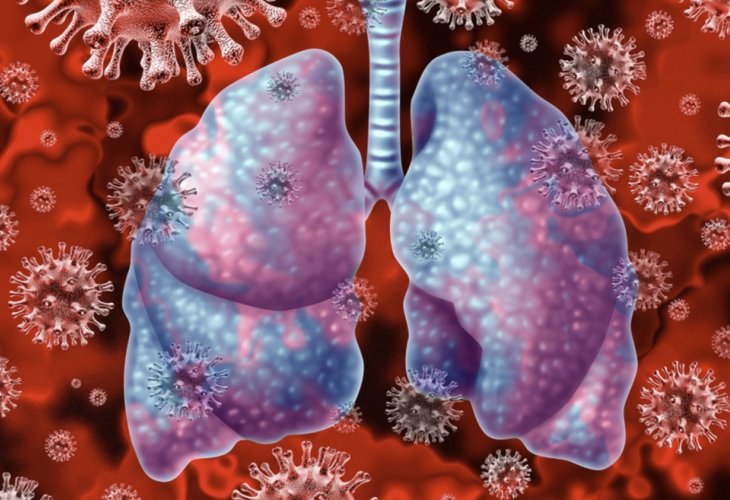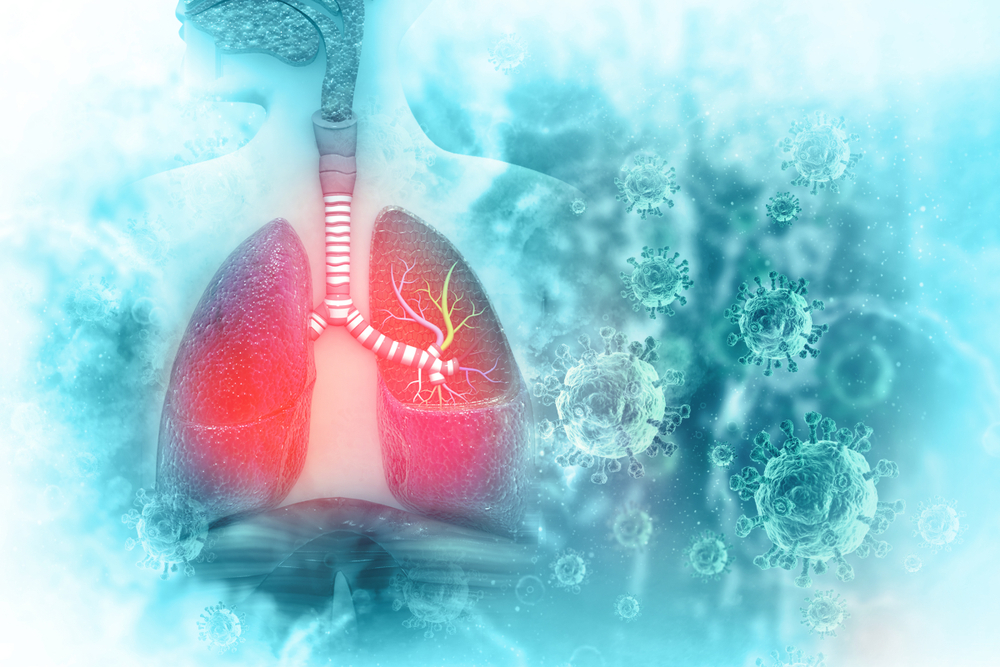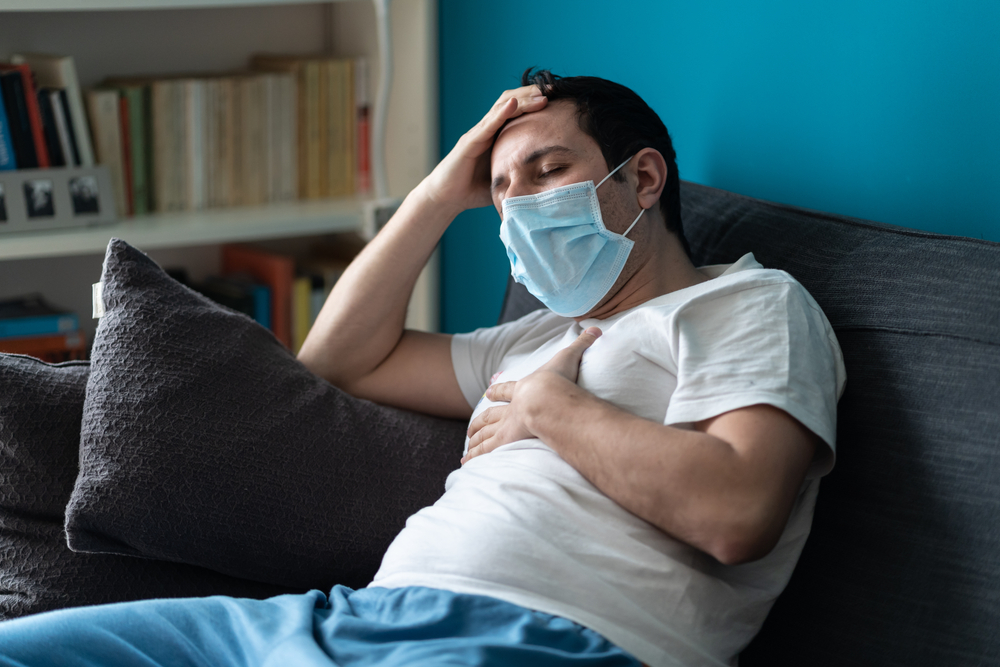The Question Stirring Recovered Patients: Can You Get Infected with COVID-19 Twice?
In recent weeks, panic has spread among the public following reports of recovered COVID-19 patients getting reinfected. Is the panic justified? Here’s what you need to know.
 (Photo: shutterstock)
(Photo: shutterstock)One of the most significant challenges presented by the COVID-19 pandemic is that it is a new and unfamiliar virus. While it belongs to a known group of viruses (SARS), this specific virus is new and different from others. Its novelty makes it difficult to contend with, as much remains unknown. Until recently, even the symptoms resulting from infection were unclear, and as time progresses, more questions arise.
One of the questions troubling many people, especially those who have already had COVID-19, is whether it is possible to get infected by the virus more than once. This question has caught attention in recent weeks, with media reports of COVID-19 patients who recovered and were reinfected. This question is also concerning to medical professionals because if reinfection is possible, the concept of herd immunity, which is achieved when a significant portion of the population has been infected, might not be attainable. Additionally, if reinfection is possible, developing a suitable vaccine for COVID-19 might prove more challenging than anticipated.
So, can you contract COVID-19 twice? Is a second infection as dangerous as the first? What happens to the antibodies produced in the body following infection, and how long are they effective?
We've gathered information from medical experts and various studies worldwide, but to set your mind at ease, the bottom line is that there’s likely no need to be overly concerned about this issue.
Is It Possible to Get Infected More Than Once?
How does resistance to disease develop, and how can one get infected more than once? In most illnesses, when the body contracts the disease, it develops specific antibodies tailored to the bacteria or virus attacking the body, thus fighting the disease. Once the illness is defeated and disappears from the body, the antibodies remain, so in case of another "encounter" with the bacterium or virus, the existing antibodies in the body do not allow re-infection. However, there are different virus strains, like the flu virus, which can allow for more than one infection. How does this occur? Certain viruses undergo mutations, meaning when a person who had the virus in one form is exposed again after it mutated, they might get re-infected in a slightly different form. The changes are typically minor and often unnoticeable. Yet, in most viruses, infection by one virus produces antibodies for all viruses from that family.
So, what happens with COVID-19? Experts are divided. Some argue that, like with most viruses, once someone is exposed to a coronavirus family virus, they will be immune to all different mutations of that virus. Others claim it is too early to draw such a conclusion and suggest that reinfection with the same virus might be possible.
 (Photo: shutterstock)
(Photo: shutterstock)The Monkey Study
A study conducted at Harvard University examined a group of macaque monkeys infected with COVID-19. Approximately five weeks after the initial infection and after the monkeys recovered from COVID-19, they were re-exposed to the virus. The results showed that the monkeys exhibited no symptoms of illness or only mild symptoms. Macaques serve as a model similar to humans concerning infection, making these findings useful and, of course, positive. However, the main remaining question is whether this immunity remains effective over long periods—months or years.
Recent studies conducted in the U.S. have checked nearly 20,000 participants over time, finding that antibodies resulting from COVID-19 infection weaken over time but then stabilize. Reports of the decrease in antibodies caused mild alarm among the public: Can one indeed be reinfected a few months after infection? However, Dr. Michael Mina, an immunologist from Harvard, reassures that this phenomenon is common in the body after any type of infection—initially, there are many strong antibodies, which then weaken. But this weakening does not indicate a lack of immunity to the virus; rather, it is a natural process after which immunity remains.
According to experts, immunity persists partly because antibodies are not the body's only defense mechanism against diseases. COVID-19 infection triggers a response from T-lymphocytes in the immune system, which may remain in the body and help prevent reinfection.
So How Do People Get Reinfected?
In recent weeks, reports have documented cases of reinfection in individuals who have recovered from COVID-19. One such case was Megan Kent from the U.S., a 37-year-old woman diagnosed as COVID-19 positive in late March. She had a very mild case of the illness and returned to work after isolation, but about a month later, she began feeling very unwell, was tested again, and was found positive. This time, her illness lasted about a month, with clear symptoms, and only after this month were antibodies detected in her blood tests. Additional similar cases have emerged recently. So, were they reinfected? Experts claim not.
 (Photo: shutterstock)
(Photo: shutterstock)Mark Lipsitch, an epidemiologist from Harvard University, stated that he has not heard of a single proven case of definite reinfection. According to experts, the reason for the published cases is likely because COVID-19 behaves in a way still unfamiliar to us, and similar to other viruses, could cause prolonged illness in some people, during which it gradually and slowly develops. According to experts, the likelihood of the virus attacking the same person twice, and even more so causing a more severe disease the second time than the first, is very slim.
A study conducted in South Korea examined 285 patients who claimed reinfection, but none of these cases detected live viruses from the samples taken—meaning, they did not infect anyone else.
Angela Rasmussen, a virologist from Columbia University in New York, is even more emphatic. According to her, there is clear epidemiological and virological evidence that none of the cases examined in South Korea involved reinfection.
Are We Developing Immunity?
While the topic of second-time infection continues to be examined and researched, three studies have been published, though not yet officially validated, indicating that contrary to fears, the antibodies formed after COVID-19 infection offer full protection against reinfection over time—even if the disease was mild. A Canadian study found that saliva and blood samples from people who recovered from COVID-19 contained antibodies to the virus even more than three months after the initial infection. A study conducted in Washington revealed that people who had mild illness and recovered developed antibodies that can fight COVID-19, along with specific B and T cells for COVID-19, whose numbers not only did not decrease but increased during the three months following the initial infection.
Since less than a year has passed since COVID-19 emerged in our lives, it is still not possible to know if these antibodies provide long-term protection over years. This is a topic that will continue to be investigated in research over the coming months—but for now, B'H, the findings are encouraging.

